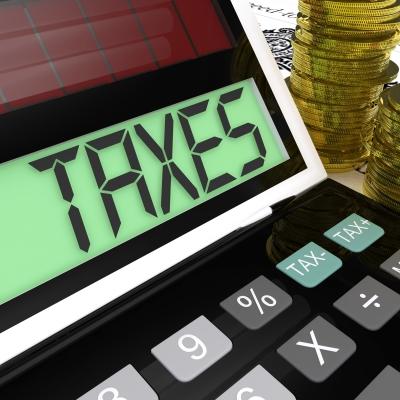
The forex market is the place to be for anyone looking to make a fortune trading a wide array of instruments from home. The market draws in millions of people daily, which explains the over $5 trillion in daily turnover. While the focus in the market is usually on making profits and keeping losses at the bare minimum, few people ever consider the tax implications in play with the business.
In the US, all winnings or profits accrued while trading various currency pairs are usually subject to taxation. Under US laws, any contract held by a taxpayer is treated as either short or long-term capital gains and subject to tax.
Taxation for futures and options traders
Under section 1256 of the Internal Revenue Service (IRC 1256), forex options and futures are some of the contracts subject to taxation. The two contracts are usually subject to 60/40 tax considerations. In this case, 60% of the gains or losses accrued from either the two are often considered long-term capital gains or losses. Similarly, the remaining 40% are considered short-term gains.
The 60/40 tax regimen works best for people in the high-income brackets when it comes to tax fillings. For instance, investors who sell their stock holdings for less than one year incur the same tax as people with ordinary income.
In contrast, for those who engage in futures or options trading, their tax wage bill includes a capital gains rate of 20% on all the 60% gains or losses incurred with the taxation period. Besides, one will also have to contend with a 37% tax rate on the remaining 40% gains and losses.
Taxation for over the counter traders

People who trade spot forex are, in this case, classified under the IRC Section 988 contracts. The categorization caters to all transactions in the capital markets that are settled within two days. The tax categorization caters to all losses and gains incurred on investing in a foreign currency.
For the classification, all the gains and losses on such investments must be recognized at the time of sale or disposition. On the other hand, gains from foreign currency transactions are treated as ordinary income.
The categorization works best for people who make net losses, trading foreign currencies through the year-ending trading. Like the IRC 1,256 categorization, one would be allowed to count all the losses as ordinary losses without limitation to just the first $3,000 with IRC 988.
IRC 988 vs. IRC 1,256
For forex traders choosing between IRC 988 and IRC 1256 for filing, returns can be overwhelming at times. However, that should never be the case. The IRC 988 would be the best way to go as it is simpler as compared to IRC 1256. The tax rate does not change when reporting for gains or losses, which works best when one reports losses.
IRC 1256 stands out partly because it offers more savings as compared to IRC 988. Savings of up to 12% on people with net gains in their trading accounts are usually up for grabs. Amid the savings benefits, most accounting firms prefer the IRC 988 contracts for spot traders. On the other hand, the 1256 contracts work best for people engaged in futures trading.
Most people anticipate net gains regardless of the financial instrument they are trading often sees them setting off the IRC 988 categorization. In case of losses along the way, there is usually a provision to switch. To opt-out of the IRC 988 categorization requires making an internal note and filing the changes with the accountant.
The switching process can become complicated when one trades an array of instruments, including stocks and commodities in addition to currencies. The IRC takes equity transactions differently, making it difficult to select either IRC 988 or IRC 1256.
Forex taxation tips
As a futures trader and forex options OTC trader, it is important to remember several things while filing for taxes. In the case of regular traders who have been making trades for quite some time, it is important to select the tax situation between IRC 988 and IRC 1256 by January 1. For beginners just getting into the business, the tax status situation should be selected any time before the first trade is made.

Filing for tax returns can be overwhelming at times. To save on time and avoid the anguish and pain that comes with the same, it is important to keep good and accurate records throughout the trading year. At the end of the year, you will be able to retrieve all the required records and file them with ease; conversely, spend more time on the trading desks rather than trying to collect records.
It’s not easy to beat the system, as most people think, especially when trading over the counter. The IRS has caught up with many people who thought it is impossible to rack trades over the counter.
That said, never try to beat the system just because you trade over the counter. Please pay what you owe to avoid the tax evasion fees that always come into play on the IRS catching up with people who fail to pay their dues.
Bottom line
Futures and options trading is just like other capital gains activities subject to taxation in the US. Two categories exist that allow people to file the necessary taxes depending on the instruments they trade and the returns they make.
Likewise, keeping selecting status early in the year, either IRC 988 or IRC 1,256 early in the year, is crucial. It is also essential to keep a good record of all trading activities focusing on net gains and losses that occur for filing purposes. Similarly, taking time to file correctly can save one hundred dollars and the tax evasion avoidance fees commonly imposed by the IRS.







